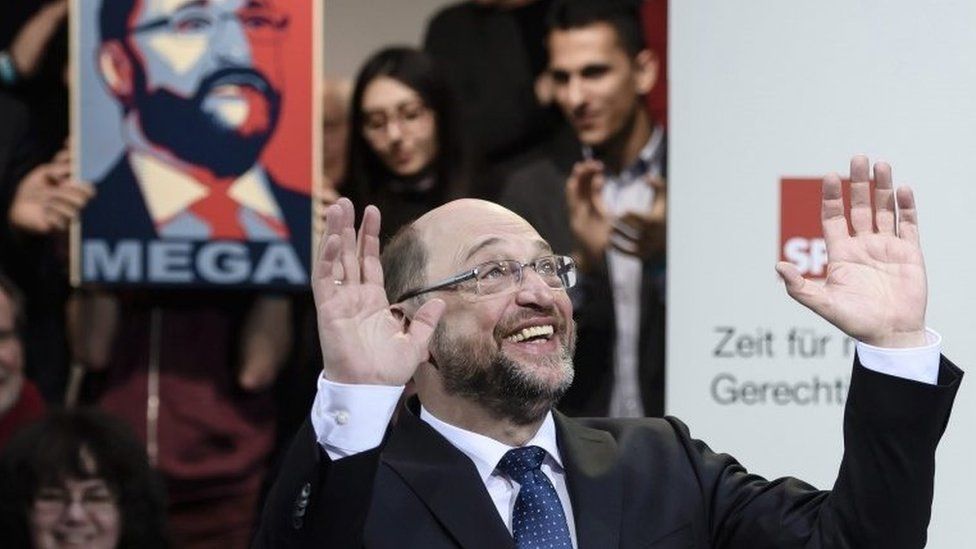Germany election: Martin Schulz to stand against Merkel
- Published

Leaders of Germany's Social Democrats have chosen Martin Schulz, for many years president of the European Parliament, as their candidate to unseat Chancellor Angela Merkel.
Mr Schulz promised supporters his campaign for September's elections would focus on "hard-working people".
He also looked forward to making the elections "really exciting".
His SPD has governed in a "grand coalition" with Mrs Merkel's Christian Democrats (CDU) since 2013.
The SPD is hoping that its choice of Mr Schulz, who will also become the party's leader, can boost its chances of gaining a mandate to govern without the CDU.
Opinion polls suggest the Social Democrats trail the CDU by some margin, although Mr Schulz's personal poll rating compares favourably with that of Mrs Merkel, who plans to run for a fourth term.
In a speech to 1,000 supporters in Berlin, he spoke of deep divisions in Germany and said he would fight for greater fairness and social unity.
"Only with a society that holds together can we be strong," said Mr Schulz, 61.
He also criticised the Trump administration and Hungary for their attitudes on immigration.
Mr Schulz replaces Sigmar Gabriel as leader of the SPD.
Mr Gabriel announced in a surprise move on Tuesday that he was standing down as leader and chancellor candidate after conceding Mr Schulz stood a better chance of leading the party to victory.
Mr Gabriel, Germany's vice-chancellor, became foreign minister in a reshuffle on Friday.
A former bookseller, Mr Schulz comes from Aachen near the Dutch border and once wanted to be a professional footballer.
His international profile rose in 2003 when he famously clashed in the European Parliament with former Italian Prime Minister Silvio Berlusconi, who likened him to a Nazi concentration camp guard.
- Published3 June 2019
- Published24 November 2016
- Published4 September 2023